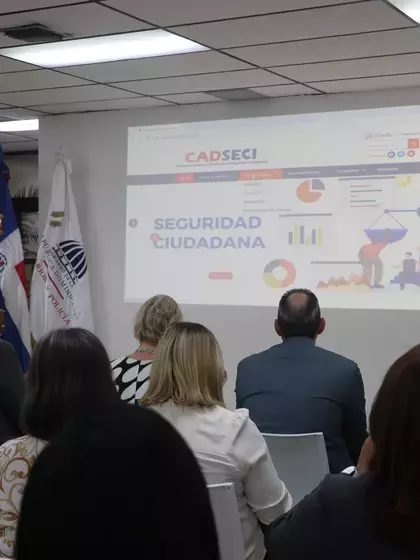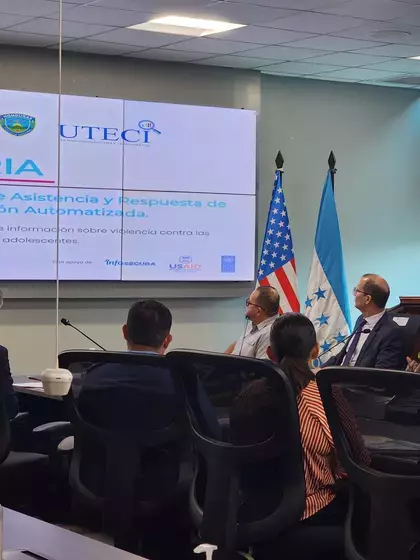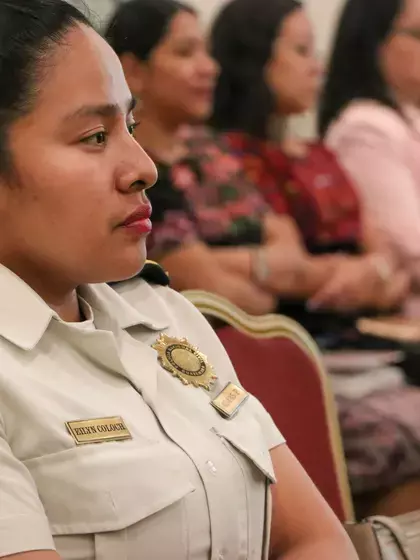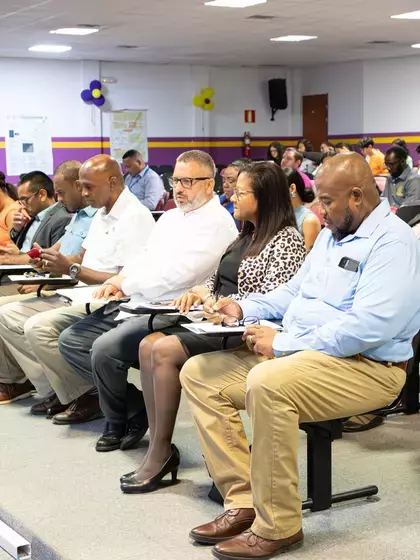Analysis of risk factors affecting peaceful coexistence and citizen security at in 56 municipalities
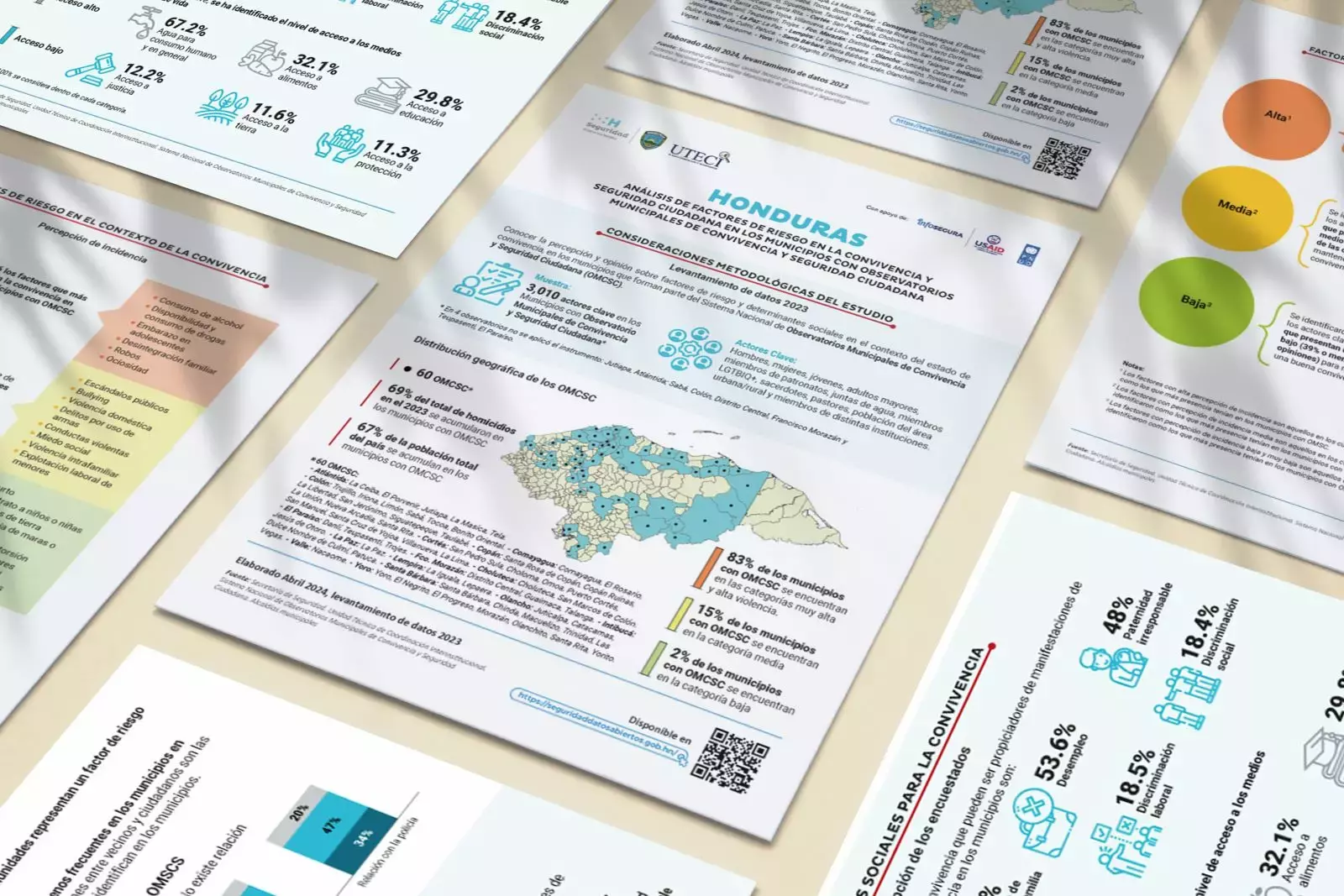
The Secretariat for Security undertook an exploratory study in 2023, administering a surveys to 3,010 men, women, youth, older adults, particularly key stakeholders like local council members, water management boards, LGTBIQ+ persons, priests, pastors; these were people from urban and rural areas, and members of different institutions in the municipalities involved in the National System of Municipal Coexistence and Citizen Security Observatories (OMCSC), in order to gather perceptions and views on risk factors and social determinants in the context of the state of peaceful coexistence.
The results revealed six disruptors that pose the greatest risk to peaceful coexistence in the municipalities: Alcohol and drug availability and use, adolescent pregnancy, family disintegration, robbery and idleness. It also emerged that the fewest interactions in the municipalities are with the police; whereas, interactions with neighbors and other citizens are the most prevalent.
As for social determinants of coexistence in the municipalities, the prevalence of poverty, emigration of parents, unemployment and irresponsible parenting emerged as triggers for poor coexistence.
It also emerged that the population has the least access to Justice, access to land, and access to protection. On the other hand, the population has the most access to means such as water for consumption and in general, access to food and access to education.
Other results show that there is a low level of tolerance in the community and there is a high prevalence of conflict in all of its forms. It emerged that most conflicts involved verbal violence and, to a lesser extent, physical violence. The attitudes that most trigger violence were: Aggressive attitude, competition or rivalry, and misinterpretation of facts.
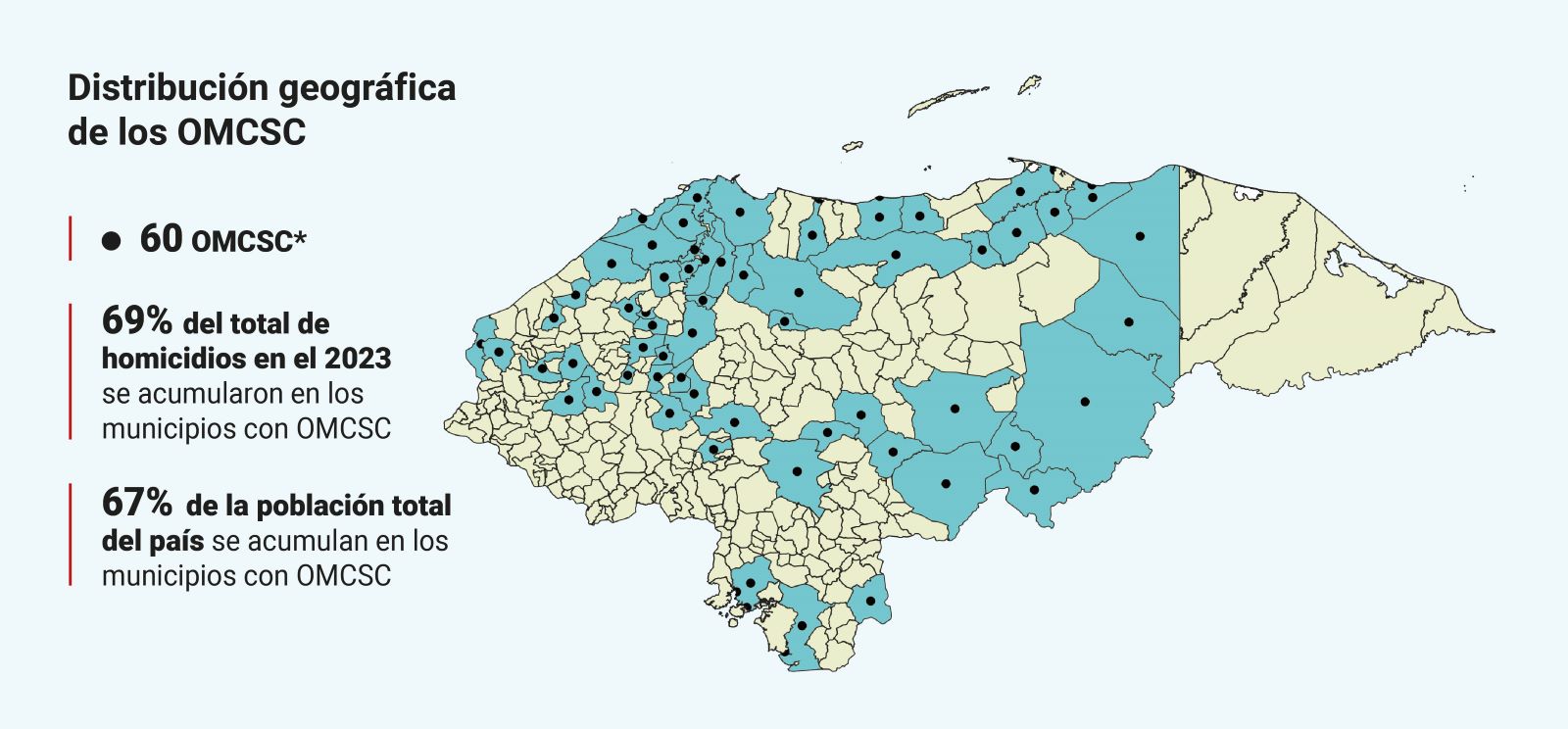
*60 OMCSC: - Atlántida: La Ceiba, El Porvenir, Jutiapa, La Masica, Tela. - Colón: Trujillo, Iriona, Limón, Sabá, Tocoa, Bonito Oriental. - Comayagua: Comayagua, El Rosario, La Libertad, San Jerónimo, Siguatepeque, Taulabé. - Copán: Santa Rosa de Copán, Copán Ruinas, La Unión, Nueva Arcadia, Santa Rita. - Cortés: San Pedro Sula, Choloma, Omoa, Puerto Cortés, San Manuel, Santa Cruz de Yojoa, Villanueva, La Lima. - Choluteca: Choluteca, San Marcos de Colón. - El Paraíso: Danlí, Teupasenti, Trojes. - Fco. Morazán: Distrito Central, Guaimaca, Talanga. - Intibucá: Jesús de Otoro. - La Paz: La Paz. - Lempira: La Iguala, Lepaera. - Olancho: Juticalpa, Catacamas, Dulce Nombre de Culmí, Patuca. - Santa Bárbara: Santa Bárbara, Chinda, Macuelizo, Trinidad, Las Vegas. - Valle: Nacaome. - Yoro: Yoro, El Negrito, El Progreso, Morazán, Olanchito, Santa Rita, Yorito.
The objective of the OMCSC observatory is to provide transparent, reliable, timely and representative local information for use in characterization and decision-making processes, in order to design and implement strategies, policies and effective programs that contribute to peaceful coexistence and citizen security.
This analysis is the outcome of strategic coordination between the Secretariat for Security in Honduras and national institutions that produce information on citizen security,1 with the support of the United Nations Development Programme (UNDP) and the United States Agency for International Development (USAID) by way of the InfoSegura Regional Project, to strengthen capacities for the formulation of public policies with a gender perspective and with an important prevention component based on quality, consensual and transparent official evidence.
The preliminary data as of this date can be accessed at the Open Data Website, as well as annual information from January to December 2023; data is updated as agencies in charge verify it, as well as the field work by the technicians of the Technical Inter-Institutional Coordination Unit (UTECI) of the Secretariat for Security of Honduras.
Source: Secretariat for Security Technical Inter-Institutional Coordination Unit. National system of Municipal Coexistence and Citizen Security Observatories Municipal governments.

